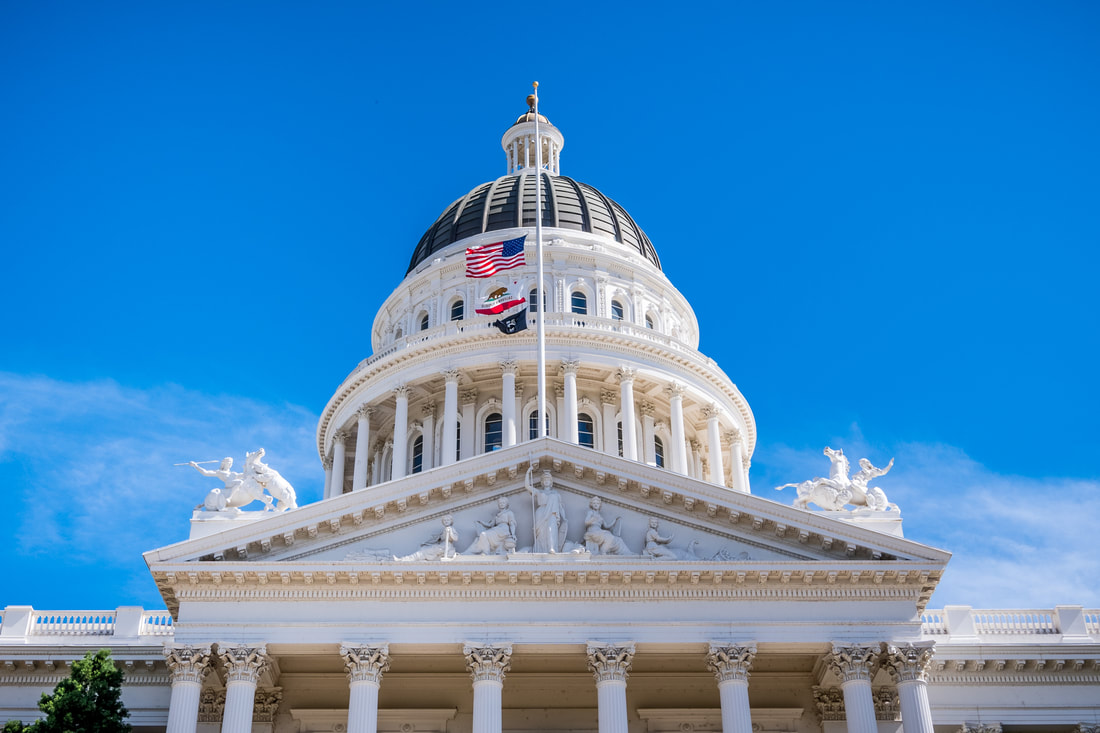Significant employment bills make their way to Governor Newsom’s desk ahead of crucial deadline9/15/2023  Thursday, September 14th marked the deadline for California’s two legislative bodies – the state assembly and state senate – to pass bills. Bills passed by both bodies will now head to Governor Gavin Newsom’s desk, where the governor will have one month to determine which bills to sign into law. The employment bills Mr. Newsom will consider for approval run the gamut, from legislation on caregiver discrimination to bills increasing paid sick days. Below is a recap of the bills at the governor’s desk that figure to have the greatest impact on California’s workers if approved. Family Caregiver Discrimination – AB 524 AB 524 would amend the state’s Fair Employment and Housing Act (FEHA) by adding “family caregiver status” to the list of protected characteristics that employers cannot take into account when making employment decisions such as hiring and firing. Consideration of this bill comes at a critical time. Caregivers are the fastest growing workplace identity group and may make up us much as 73% of the American workforce. More than 63 million Americans care for at least one child, and 40.4 million Americans provide unpaid care to someone aged 65 years or older. The pandemic’s aftermath and America’s rapidly aging population have only exacerbated the challenges faced by caregivers. Arbitration Appeal Delays – SB 365 When trial courts find that a forced arbitration agreement is invalid, employers frequently use delay tactics, such as filing an appeal, that can effectively pause a case for years at a time. If signed into law, SB 365 would undercut such tactics and allow employment lawsuits to move forward when defendants file appeals involving a petition to compel arbitration. WARN Act Expansion – AB 1356 California’s Worker Adjustment and Retraining Notification (WARN) Act protects employees by requiring employers to give a 60-day notice to affected employees before a plant closing or mass layoff. AB 1356 would expand the WARN Act’s protections by requiring employers to provide employees with 75 days of advance notice. It would also prohibit employers from requiring employees to waive their rights by signing onerous severance agreements with releases and non-disparagement provisions in exchange for the payment of back wages. The bill was inspired by the massive layoffs at tech companies like Google and Meta, particularly Elon Musk’s alleged mishandling of layoffs at the company formerly known as Twitter. Additional Paid Sick Days- SB 616 SB 616 would require California’s employers to provide workers with five days of paid sick leave instead of the current allotment of three. Increasing the number of paid sick will reduce the frequency at which workers, particularly low-income workers, are forced to make difficult decisions between foregoing pay and going to work sick. If signed into law, the bill is also expected to strengthen public health protections. According to the Washington Center for Equitable Growth, “paid sick leave guarantees are seen by many public health experts as one of the strongest tools in stopping the spread of infectious diseases.” For a list of other employment bills heading to Mr. Newsom’s desk, click here. The governor will have until October 14th to sign bills from this year’s legislative session into law.
0 Comments
 America’s largest tech companies are some of the most profitable and powerful corporations in the world, with values in the hundreds of billions of dollars and in some cases, trillions. Given such size, America’s tech companies, and more specifically, their stances on labor and employment policies, have significant influence over a broad swath of American workers’ lives and wellbeing at the workplace. With 2022 halfway through, Teukolsky Law would like to take a moment to recap some of the most notable labor and employment developments across some of our country’s largest tech companies. Amazon: 2022 has been a historic year for Amazon workers. In April, employees at a massive Amazon warehouse in Staten Island voted by a wide margin to form a union, the first successful unionization attempt by Amazon workers in the company’s history. Some commentators viewed the vote as milestone event that might signal a turning point in workers’ organizing efforts against Amazon, a company many union leaders consider a massive threat to labor standards. Google: In June, Google agreed to pay $118 million to resolve a California state class action brough on behalf of over 15,000 former employees who accused the company of underpaying women. The lawsuit, which was filed in 2017, accused Google of paying women less than men for equal or similar work. The former employees alleged that Google slotted female employees into lower “salary bands” than men, put them in lower-paying positions, and failed to promote them- practices which, according to the former employees, violated California’s equal pay act, Unfair Competition Law, and Fair Employment and Housing Act (FEHA). After the settlement was reached, the women involved and their attorneys expressed optimism that the settlement’s provisions will ensure more equity for women at Google. Microsoft: In January, Microsoft’s board announced that the company had selected a law firm to review its sexual harassment and gender discrimination policies. The announcement came after shareholders expressed concern over how Microsoft and one of its founders, Bill Gates, had treated women employees. The review will produce a report with results of any sexual harassment investigations in recent years against the company’s directors and senior executives. On the labor front, a group of workers at Activision Blizzard, a large video game company currently being acquired by Microsoft, voted in May to unionize, a first for a major North American video game company. Weeks after the deal, in June, Microsoft reached an agreement with the Communications Workers of America Union to make it easier for Activision Blizzard’s employees to unionize. Legislation: The first half of 2022 has seen the passage of landmark federal employment legislation. In March, President Biden signed H.R. 4445 into law, preventing employers from using forced arbitration clauses to protect themselves from lawsuits alleging sexual assault and harassment. The law does so by invalidating forced arbitration clauses in “any dispute or claim that arises or accrues” after the date it was signed into law. H.R. 4445 figures to be a significant development for the tech industry, in light of the male-dominant and sexist culture that pervades Silicon Valley. Powerful state employment legislation was also passed during the first half of 2022. In Washington, Governor Inslee signed the “Silenced No More” act into law in March. The law bars employers from making nondisclosure agreements (NDAs) a condition of employment or settlements and affects some of the largest tech companies in the world, including Amazon and Microsoft. Washington’s law mirrors California’s own Silenced No More act, which already has prompted Salesforce and its subsidiary, Slack, to extend Silenced No More protections to all of their employees across the country. If the first half of the year is any indication, 2022 will represent a significant victory for both the labor movement and workers in the tech sector.  In a proxy statement ahead of its annual shareholders’ meeting, Google stated that employees who have signed confidentiality agreements can still talk about assault, harassment, discrimination, or retaliation they experience at the workplace. The announcement marks Google’s clearest stance yet on its non-disclosure agreements (NDAs), and is another victory for advocacy groups that have been working to eliminate workplace NDAs, which have become increasingly restrictive and prevalent over the past several years. Google’s statement makes clear that employees are allowed to discuss working conditions and wages with each other, and that any employees who have signed settlement or severance agreements—even those containing NDAs—are still allowed to talk about any sexual assault, discrimination, harassment, or retaliation they experienced. Though the statement did not constitute a concrete policy change, it offered an explicit promise that Google employees may now hold the company to, should they ever bring claims against the company. The inclusion of language regarding the company’s concealment clause and NDA policies was prompted by a shareholder proposal that would have required Google to issue a public report studying the impact of NDAs on harassment and discrimination claims. Such a request came on the heels of states such as California and Washington passing “Silenced No More” laws, which have barred employers in each state from using NDAs to stop employees from publicly discussing harassment, discrimination, retaliation, and other illegal workplace practices. If you believe you have been subjected to illegal workplace practices and are being prevented from discussing your experience because of an agreement from your employer, contact Teukolsky Law today for a free consultation. |
AuthorLauren Teukolsky is the founder and owner of Teukolsky Law, A Professional Corporation. Archives
June 2024
Categories
All
|
Teukolsky Law, A Professional Corporation, represents clients throughout California. Ms. Teukolsky is admitted to practice in the State of California, as well as the United States Supreme Court, Ninth Circuit Court of Appeals, Northern District of California and Central District of California. Disclaimer.
Copyright © 2017
Copyright © 2017

 RSS Feed
RSS Feed